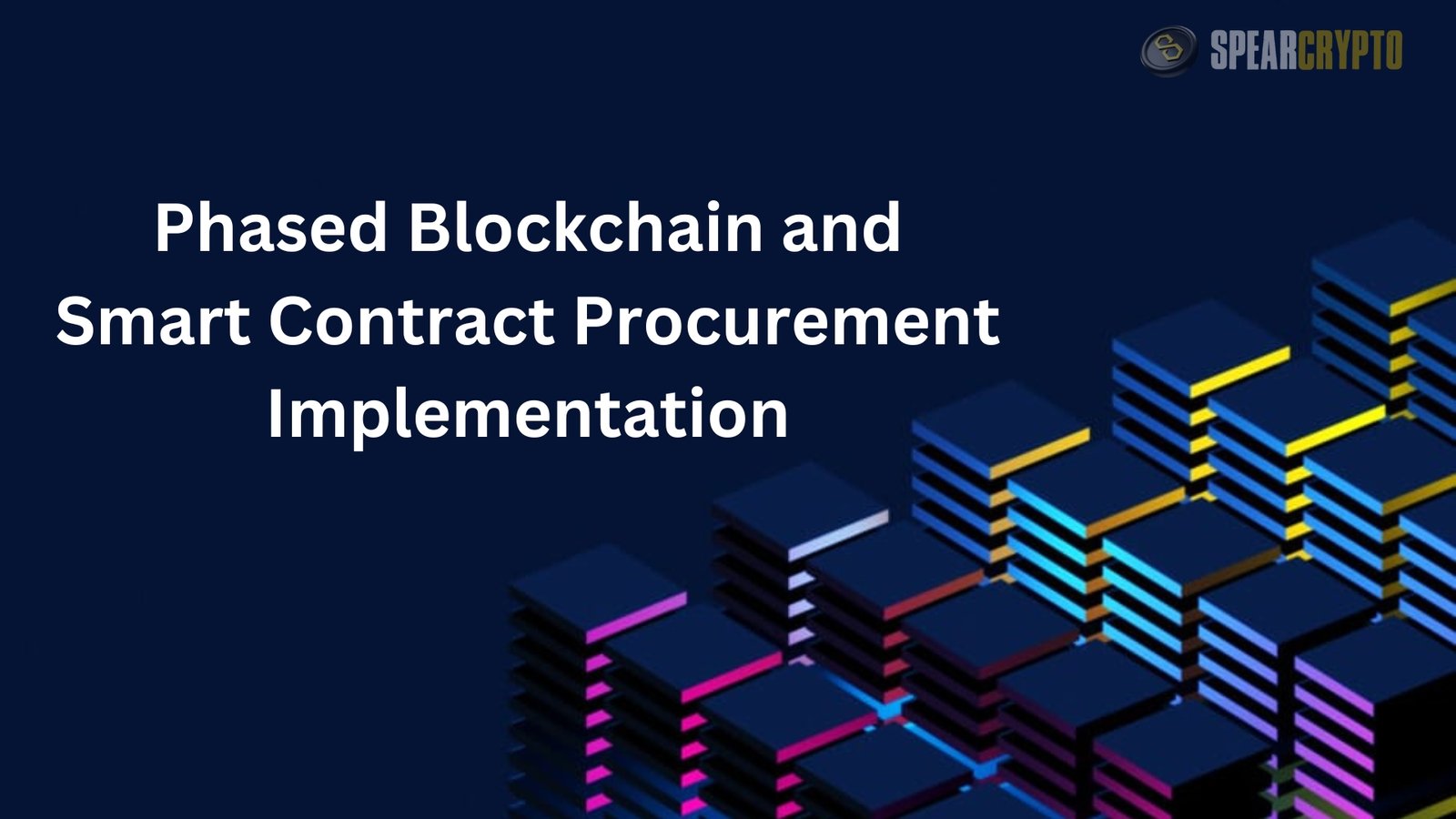
Blockchain in Procurement. Traditional procurement systems frequently face many challenges that hinder efficiency, transparency, and cost-effectiveness. Manual, paper-based systems are heavily relied upon and notoriously error-prone, slow, and opaque. As a result, keeping tabs on orders, monitoring inventory, and checking for regulatory compliance may be a real pain. In addition, stakeholders’ communication and collaboration may be disjointed, leading to misunderstandings and postponements in decision-making.
Lack of trust and openness in conventional procurement is another big obstacle. The lack of transparency regarding supplier policies, pricing models, and other biases can lead to distrust and suspicion. Because of this, the likelihood of fraud and corruption rises, and it becomes more difficult to build lasting relationships with suppliers. Higher prices for consumers, less innovation, and less competition are all outcomes of over-reliance on a small number of well-established suppliers.
In addition, instead of being proactive, typical procurement methods tend to be reactive. In other words, companies aren’t thinking about the future as much as they are about meeting customers’ urgent demands. The chances of saving money, consolidating suppliers, and adopting innovative solutions can be lost due to this myopic view. Furthermore, it may be challenging to respond to new trends, disruptive technology, and changing consumer wants using conventional procurement procedures due to the fast evolution of the corporate environment.
Critical Applications of Blockchain in Procurement
By improving transparency, efficiency, and trust, blockchain technology transforms procurement with features like decentralized markets, smart contracts, and supply chain traceability. With its many uses, blockchain technology has the potential to transform the way procurement is done by increasing supply chain trust, transparency, and efficiency. Regarding practical uses, supply chain transparency and traceability stand out. Organizations can obtain unparalleled insight into the provenance, authenticity, and state of items by documenting all transactions and shipments on an immutable blockchain record.
By eliminating the need for human participation and the associated risks, smart contracts enabled by blockchain technology expedite and automate the purchase process. When certain conditions, like the delivery of goods or the completion of services, are met, these self-executing contracts can automatically trigger payments. Not only does this shorten processing times, but it also eliminates intermediaries, which improves cash flow and cuts costs. Furthermore, smart contracts can efficiently and transparently resolve disputes, handle complicated procurement agreements, and guarantee that all terms and conditions are met.
There has been a recent upsurge in the use of blockchain technology in decentralized markets, which provide a safe and open environment for direct transactions between vendors and consumers. These markets encourage honest competition, cut out intermediaries, and lower transaction costs. Customers can research products, compare costs, and assess the efficiency of vendors. The flip side is that suppliers may reach more customers, promote their goods and services, and earn credibility by being open and honest in their ratings and reviews.
Significance of Smart Contracts for Procurement Optimization
Automated, transparent, and capable of handling complicated circumstances, smart contracts improve procurement by increasing confidence and allowing real-time monitoring. Smart contracts—agreements with stipulations put into code and self-executing—are invaluable when it comes to streamlining the purchasing procedure. Their usefulness comes from the fact that they can automate and simplify several processes, making human participation unnecessary and increasing the likelihood of mistakes. Smart contracts have several valuable applications; for example, they can automate generating purchase orders, checking suppliers’ credentials, tracking shipments, and triggering payments when certain conditions are met.
Smart contracts improve accountability and confidence in procurement because they are transparent and immutable. The parties to a contract can view all the terms and conditions written into it on a distributed ledger called a blockchain. Blockchain in Procurement: This gives an auditable record of transactions, removes doubt, and decreases the possibility of conflicts. Also, smart contracts can include dispute resolution procedures, meaning issues can be resolved quickly and fairly without going through drawn-out court battles.
With the help of smart contracts, businesses can quickly put sophisticated procurement plans into action. They are versatile and can be set up to deal with tiered pricing, performance-based incentives, and bulk discounts. Buyers can then optimize inventory levels, negotiate better deals, and incentivize supplier performance. By combining smart contracts with new technologies like AI and the Internet of Things (IoT), supply chain events can be tracked in real time, demand patterns can be predicted, and possible disruptions can be handled beforehand.
Phased Blockchain and Smart Contract Procurement Implementation
Blockchain in Procurement.Finding use cases, creating a proof-of-concept, and then growing the solution while ensuring everyone is trained and integrated is a phased approach. Businesses may ease into blockchain technology, reduce risk, and switch using a phased strategy. The first step is determining which use cases will benefit most from combining blockchain technology and smart contracts. Automated purchase orders, invoice verification, and supply chain traceability could fall into this category.
In the second stage, you’ll build a proof-of-concept (PoC) to see how well the selected use cases work in practice. Building and launching a small-scale prototype project with real-world data and scenarios is part of this process. Blockchain in Procurement: Through the PoC, businesses can evaluate the technical requirements, pinpoint any obstacles, and fine-tune the strategy for deployment. As a bonus, it’s a great way to get stakeholder and user input that can be incorporated into the final product.
In the third stage, the solution is expanded to include more processes and stakeholders. To do this, it is necessary to coordinate and prepare ahead so that new systems and procedures can seamlessly integrate with the old ones. For consumers to use the latest technology well, offering them sufficient training and support is crucial. The solution’s performance, improvement opportunities, and the state of continuous optimization can be tracked with regular review and monitoring.
Smart Contract Implementation Challenges in Procurement
Lack of standardization, unpredictability in legal frameworks, and technical complexity are some of the obstacles to implementing smart contracts in procurement. There are unique obstacles to implementing smart contracts, notwithstanding their revolutionary promise inBlockchain in Procurement. Discordant blockchain standards and an absence of interoperability pose a significant challenge. It may be challenging to integrate smart contracts with current procurement systems and procedures due to the disjointed structure of the blockchain ecosystem. For this reason, it is critical to establish universally accepted protocols and frameworks for the interchange of data and the smooth operation of various platforms.
Blockchain in Procurement: Another obstacle is the complex web of laws and regulations governing smart contracts. Despite the apparent advantages, many jurisdictions have not yet resolved concerns about the legal enforceability of smart contracts and whether or not they comply with current legislation. In particular, this might make international transactions more risky and unclear for organizations. Furthermore, when changes or cancellations are required, the immutability of smart contracts can be a problem. To tackle these intricate legal and regulatory matters, industry players, legal professionals, and lawmakers must work together to establish transparent protocols and benchmarks.
Smart contract development and execution can be technically challenging and a hurdle for enterprises. Professional knowledge and experience are necessary to design and implement smart contracts that are safe, dependable, and efficient. Financial losses, operational interruptions, and reputational damage can result from vulnerabilities or defects in smart contract code. To ensure smart contracts work, businesses should invest money into training and development programs to increase in-house skills or team up with seasoned blockchain engineers.

![Bitcoin vs Altcoins Who Wins the Breakout [2026 Analysis]](https://spearcrypto.com/wp-content/uploads/2026/01/Bitcoin-vs-Altcoins-Who-Wins-the-Breakout-2026-Analysis-390x220.jpg)






